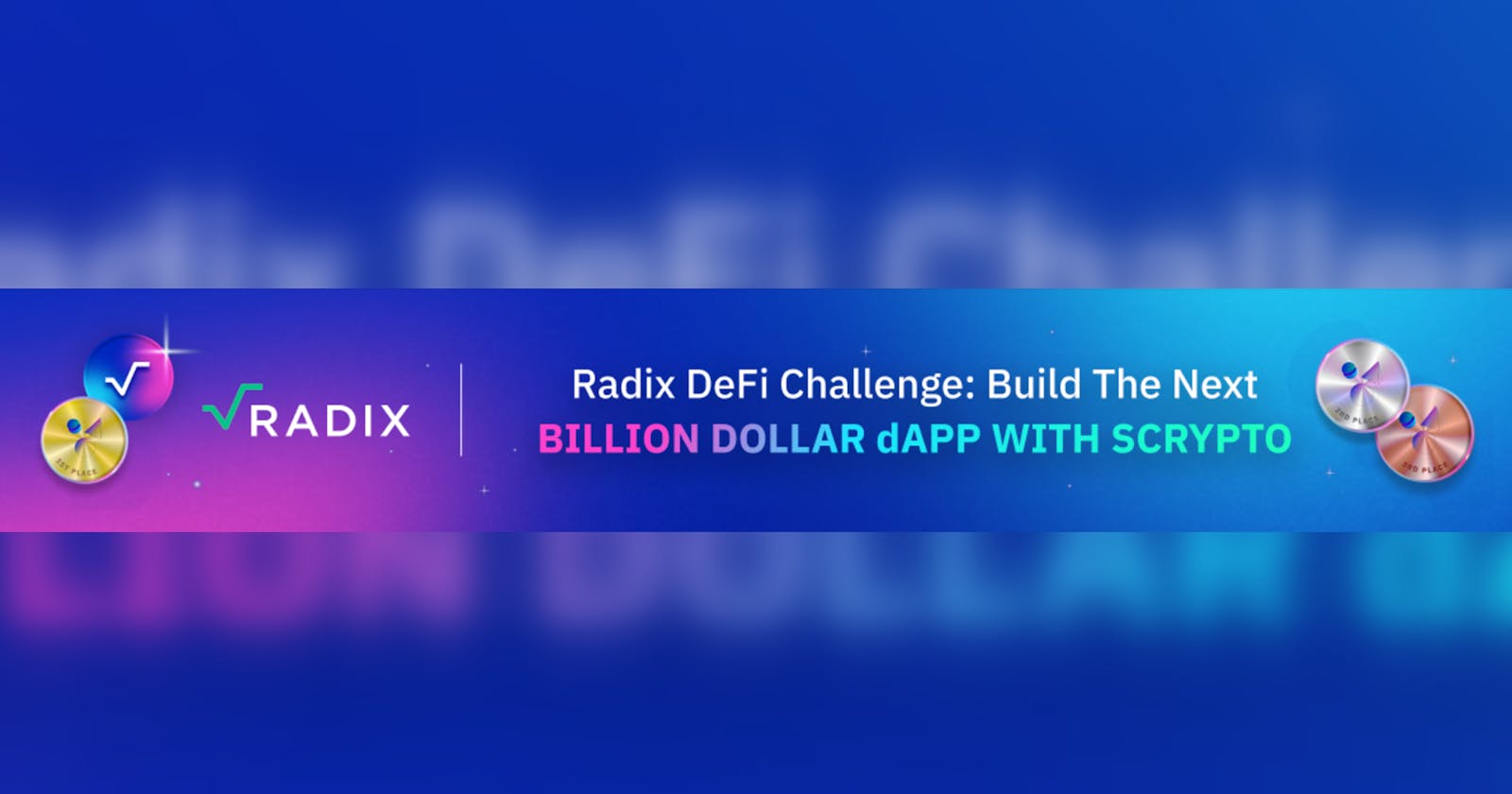As a junior blockchain developer, I am always eager to learn about new technologies that can help me create innovative and secure decentralized applications. Recently, I participated in the "Scrypto defi hackathon" and it was an amazing experience. It gave me a chance to work with like-minded individuals who were passionate about blockchain technology and learn more about Scrypto and Radix.
Scrypto is an open-source smart contract language that powers the Radix public network. It's designed to help developers create secure and powerful DeFi dApps without worrying about losing money. Radix, on the other hand, is a distributed ledger technology that enables developers to create decentralized applications that are more efficient, trustless, and cheaper than traditional financial systems.
During the hackathon, my team and I came up with an innovative idea for a DeFi dApp called "AlkyneFi". We were motivated by the inherent design of Radix-Scrypto that allows us to build DeFi systems for the best use cases. AlkyneFi is a trader's go-to platform to skyrocket their investment by increasing the principal involved. We understood that swapping of tokens for trade has been the wheel that drives the basis of crypto, and there's only building over it that sustains a protocol. Therefore, we utilized the power of margin trading.
Our motivation was to ensure that traders get the best out of their investment by allowing them to maximize the variables that support it. We took compound interest as our bible and understood it piece by piece, where we first maximize profits by doubling the principal and suggest traders to stick longer for even more returns.
The protocol is defined simply by investing through our pooled principal mechanics and earning from highly profitable investments. We achieve this by using Equally Collateralized Trades.
I was impressed by Scrypto's user-friendly syntax and its ability to handle complex smart contracts with ease. I was able to write efficient and secure code without worrying about the underlying infrastructure. This allowed me to focus on the functionality of our DeFi dApp and gave me the freedom to experiment with new ideas.
Radix, on the other hand, provided us with a secure and scalable infrastructure for our DeFi dApp. Its consensus algorithm ensured that our transactions were validated quickly and efficiently. It also provided us with the ability to create custom tokens and manage our smart contracts without any hassle.
Participating in the Scrypto defi hackathon was a great learning experience for me. I got to work with cutting-edge technologies and learned a lot about smart contract development and decentralized finance. I was also able to network with other developers and exchange ideas and best practices.
As a junior blockchain developer, I am always excited about learning new technologies, and Scrypto and Radix have definitely made it to the top of my list. I believe that they have the potential to revolutionize the DeFi space and create a more efficient and secure financial system. I can't wait to see what the future holds for these technologies, and I am committed to continuing my learning journey with them.
In conclusion, the Scrypto defi hackathon was an amazing experience that allowed me to work on an innovative DeFi dApp and learn more about Scrypto and Radix. I would encourage any developer who is passionate about blockchain technology to participate in hackathons and explore new technologies. It's a great way to expand your knowledge and skills and meet like-minded individuals who share your passion.
Devpost link to our project AlkyneFi :- https://devpost.com/software/alkynefi
